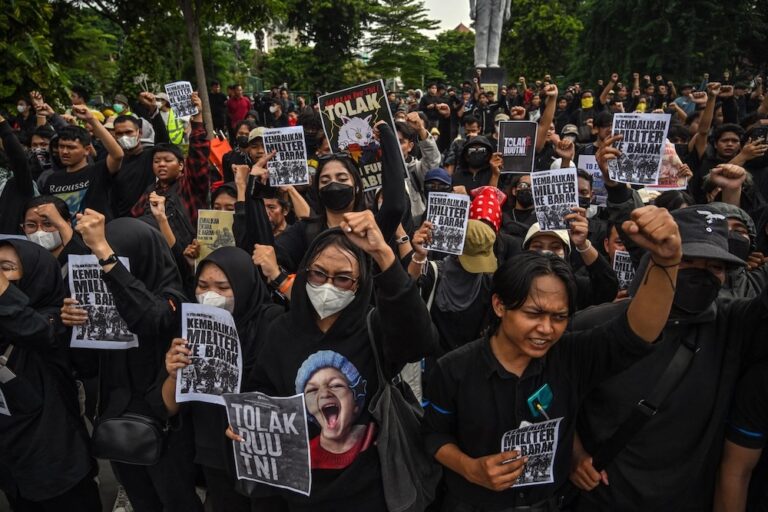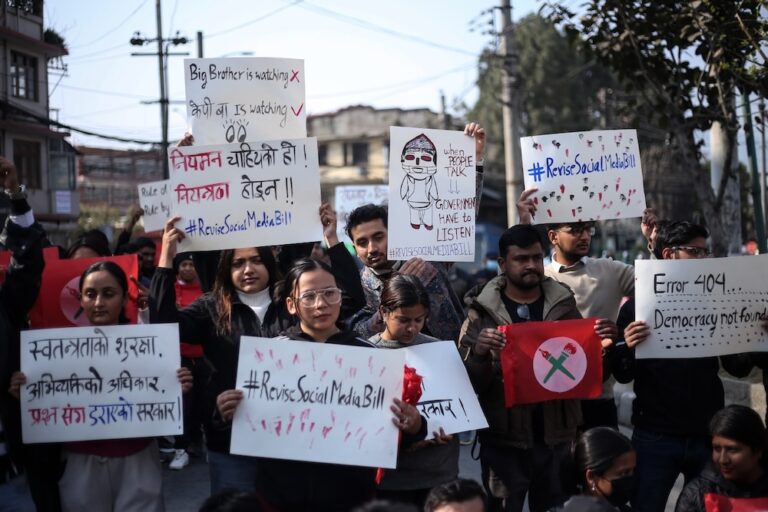In an open letter to the ASEAN Secretary-General, SEAPA noted that it has recorded 100 acts of impunity throughout Southeast Asia committed through acts of violence and the imposition of harsh laws against the exercise of free speech, particularly on commentary on political actors and policies.
(SEAPA/IFEX) – 24 January 2013 – This call by SEAPA was sent to the office of the ASEAN (Association of Southeast Asian Nations) Secretary General as an open letter:
We, the Southeast Asian Press Alliance (SEAPA), a Bangkok-based regional press freedom and freedom of expression advocacy group, welcome the assumption to the office of Mr. Le Luong Minh, a former deputy foreign minister of Vietnam, as Secretary General of ASEAN on January 9.
You are assuming the office at crucial period when the association is racing against time to accomplish its goals of launching of ASEAN Community.
We are optimistic that your diplomatic experience and fresh perspective will guide the ASEAN secretariat through this challenging time.
As your Excellency said during your inaugural speech on January 9, that, in accomplishing this task of ASEAN Community building, “there is room to improve policy implementation across the political-security, economic and socio-cultural pillars”. We hope that this will be taken to mean the balance of the three ASEAN community pillars, particularly those aspects promoting human security and sustainable development, as the ASEAN Economic Community is launched first in 2015.
As SEAPA’s work is to promote and protect freedom of expression and freedom of the media in the region, we wish to underline our call for your office to protect and promote the right to freedom of opinion and expression in the region, which is central to people’s participation in building the ASEAN Community.
From your vantage point, you would no doubt agree that national protections on free speech and the press are uneven, contributing to a general decline of the situation in most countries and the region as a whole. SEAPA has recorded 100 acts of impunity throughout the region committed through acts of violence and the imposition of harsh laws against the exercise of free speech, particularly on commentary on political actors and policies.
To use the most recent examples occurring just weeks before you took office, we cite the disappearance of Lao NGO development worker and Ramon Magsaysay-award winner Sombath Somphone. So far, government efforts to investigate the case and help find him have proved fruitless, even as information on the investigation itself remains scarce. Also, one week before Sombath went missing, a senior Swiss development worker, Anne-Sophie Gindroz, was expelled from Laos for airing concerns on participation in a meeting of development agencies. We fear that these cases are linked to their efforts to speak openly about the detrimental consequences of development policies to local communities.
We would like to stress that similar situations also prevail in other ASEAN countries as state authorities tend to abuse the vague nature of national security, public morality and health to withhold information from the public and even to justify transgressions of internationally protected human rights.
Given these circumstances, we hope that under your guidance the Secretariat could lead in harmonizing the policies and implementation of the right to access public information in all member countries, as contained in the ASEAN Human Rights Declaration article 23, which is intended to strengthen international protections guaranteed in the Universal Declaration on Human Rights and the International Covenant on Civil and Political Rights. This is also consistent with commitments made by ASEAN leaders in the Political and Security and Socio-Cultural Community blueprints, giving importance to the role of the media and civil society in promoting ASEAN goals of peace, security and prosperity.
We believe that the ASEAN Secretariat can itself initiate demonstrating the practice of open public information by allowing media and civil society access to relevant documents and mechanisms for policy making crucial to regional integration.
Once again, we would like to take this opportunity to wish you a successful term of office in the years ahead.


